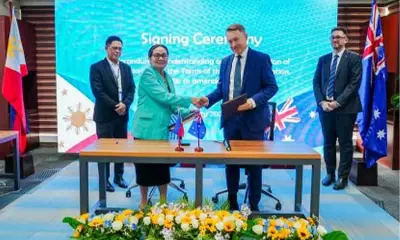
Asia-Pacific Maintains Position as Global Economic Powerhouse
The Asia-Pacific region continues to stand as the world's most dynamic economic area, but maintaining this leadership position requires countries to effectively navigate global challenges and strengthen regional partnerships, according to a prominent Indonesian economist.
Christina Ruth Elisabeth, a lecturer at the University of Indonesia's Faculty of Economics and Business, emphasized in a recent interview that the region has served as a major engine for worldwide economic expansion over the past three decades.
Drivers of Success and Emerging Challenges
Elisabeth identified several key factors behind the region's economic achievements. Trade liberalization, deeper supply chain integration, and rapid technological advancement have collectively fueled the Asia-Pacific's remarkable growth story.
Focusing specifically on Indonesia, the economist noted the country's economic resilience despite increasing global pressures. Domestic consumption remains robust, inflation stays stable, and promising opportunities are emerging within digital and green industries, she observed.
However, Elisabeth also highlighted significant challenges facing both Indonesia and the broader region:
- Attracting high-quality investment
- Improving infrastructure networks
- Managing external pressures from volatile global trade and capital flows
Across the Asia-Pacific, economic growth is slowing due to multiple factors including higher interest rates, protectionist trade measures, and geopolitical tensions that disrupt supply chains. Many regional economies are additionally grappling with aging populations, slower productivity growth, and uneven progress in digital and green transitions.
Pathway to Sustainable Growth and Regional Cooperation
Despite these challenges, Elisabeth expressed optimism about the region's long-term prospects. The Asia-Pacific still possesses strong potential for continued growth, provided countries strengthen regional cooperation mechanisms.
She pointed to the current APEC theme, Building a Sustainable Tomorrow: Connect, Innovate, Prosper, as reflecting the necessary vision for future development. As deglobalization and protectionist trends intensify globally, maintaining open connections becomes increasingly crucial, Elisabeth emphasized.
To build what she described as the next 30 golden years of development, the economist recommended that Asia-Pacific economies focus on three key areas:
- Productivity transformation
- Innovation-driven growth
- Inclusive green development
Elisabeth specifically stressed the importance of strengthening supply chain integration, expanding digital connectivity, and maintaining open trade policies even as global fragmentation increases. This approach requires substantial investment in sustainable infrastructure, renewable energy, and research, while simultaneously supporting small and medium-sized enterprises to ensure inclusive development.
The economist also acknowledged China's significant role in promoting regional economic development, noting that China has helped strengthen regional integration through expanded market access, increased investment, and improved infrastructure connectivity.
She cited the Jakarta-Bandung High-Speed Railway as a prime example of successful Indonesia-China cooperation, demonstrating infrastructure modernization, improved mobility, and Indonesia's growing capacity to adopt advanced technology.
Looking ahead to China's hosting of the 2026 APEC meetings, Elisabeth expressed hope that Beijing would prioritize stronger supply chains, deeper digital integration, and enhanced renewable energy cooperation as key agenda items.





